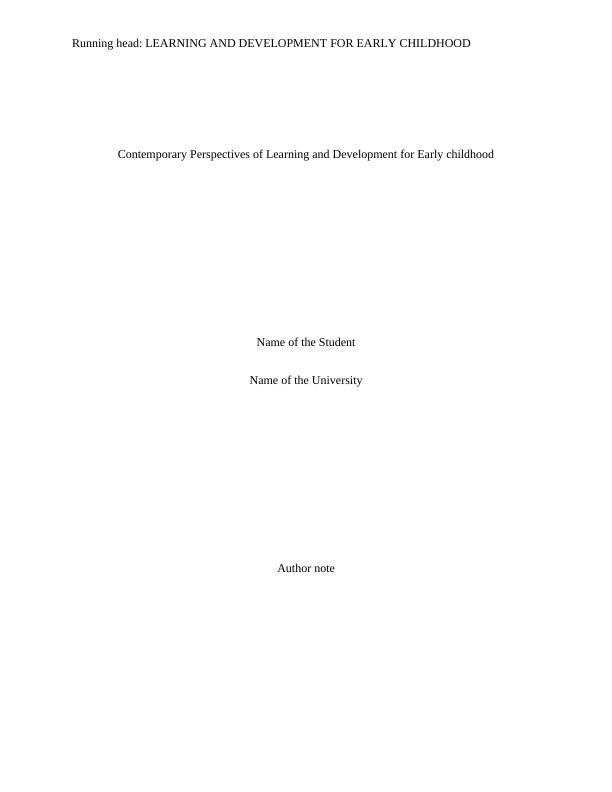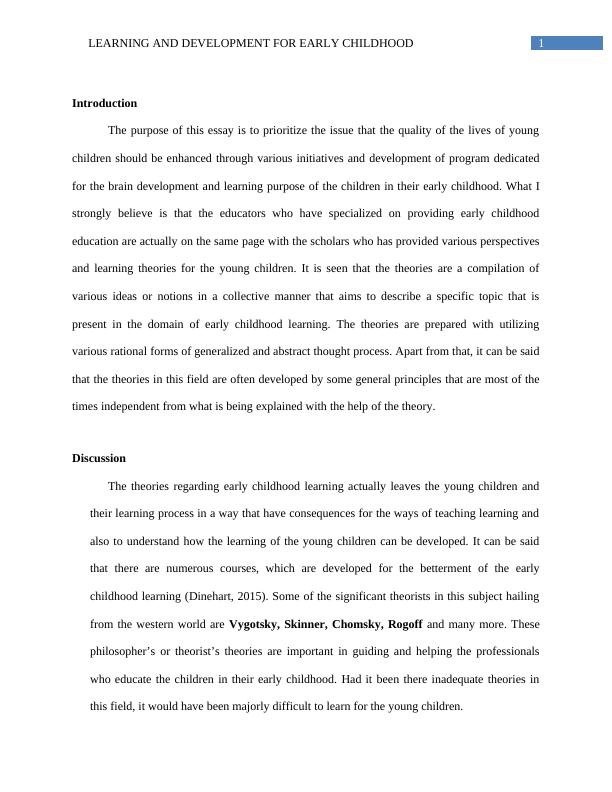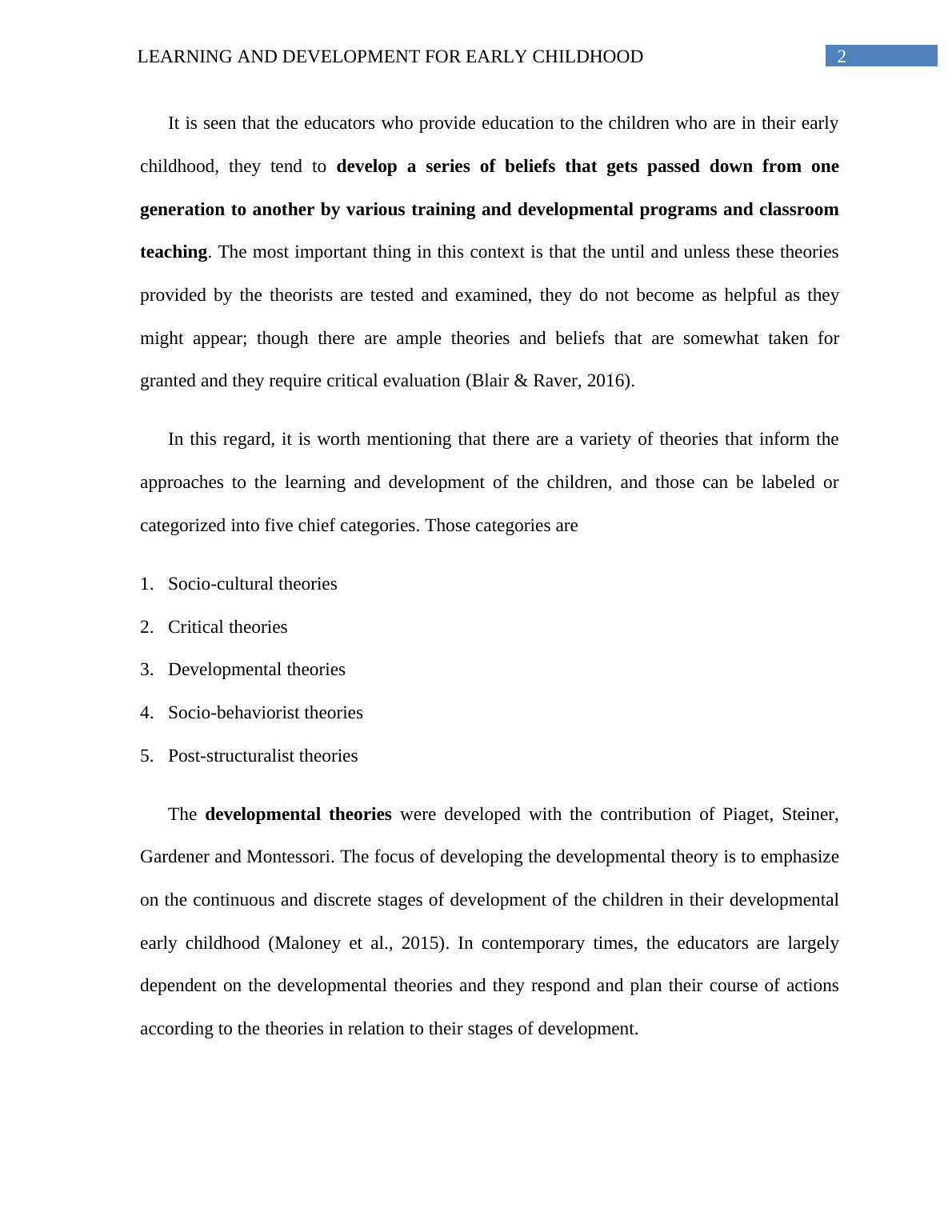Learning and Development for Early Childhood
Added on 2021-04-21
9 Pages2109 Words64 Views
End of preview
Want to access all the pages? Upload your documents or become a member.
What skills do you Need for Early Childhood Education?
|12
|3422
|28
(PDF) Developmental Perspectives on Learning
|11
|2942
|102
Inclusion in Early Childhood Education: Key Stakeholders, Political and Media Perspectives, and Impact on Educators, Children, and Families
|9
|1918
|71
Why is it Important for Early Childhood Educators to draw upon a range of Theoretical Perspectives in their Work?
|9
|2423
|103
Inclusion of Critical Literacy and Popular Culture in Early Childhood Education
|12
|3307
|352
Early Childhood Learning
|6
|1155
|94



